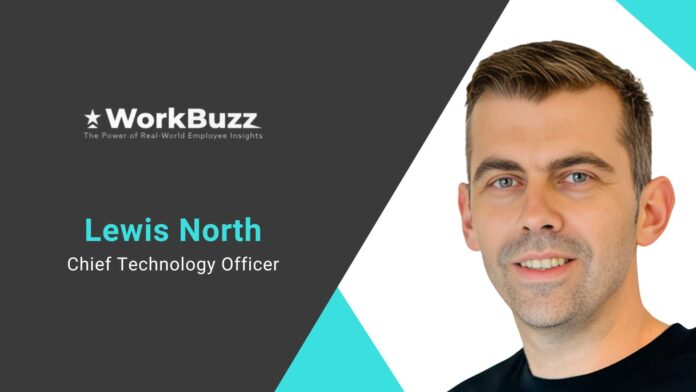With over two decades in tech, how have you seen digital solutions evolve across sectors in HR Tech?
There have been a couple of notable shifts. The first is the rise of juggernaut HR systems like Workday, which have acquired other businesses rather than build their own solutions. Another example is Microsoft acquiring Glint. With products being swallowed up by such large players, it’s hardly surprising to hear – albeit anecdotally – that the customer experience has been impacted by these acquisitions.
There has also been a homogenization of HR tech platforms at the lower end of the market, with systems that claim to do it all. The reality is that such systems are probably fine if you are early in your HR journey and require a fairly generic solution. If you need more tailored services, expert advice or strategic help, then the role of a specialist platform and provider remains. As an example, over 40 percent of WorkBuzz’s customers pay for our People Science team to support them with formulating listening strategies, delivering employee engagement presentations to their leadership team, or actioning planning workshops. The right HR tech is crucial, of course, but knowing what to do with the insights is just as important, and this is when a specialist comes into their own.
Automation is a key trend in HR. What do you think are the most impactful everyday HR tasks that automation will streamline, and how will this change HR teams’ roles?
Automation and AI tools can be easily used for recruitment and talent management such as by analyzing the existing talent pool, assessing resumes to flag top candidates, and drafting job descriptions and offer letters. They can also help to navigate complex global workforce challenges. Plus, learning and development is ripe for change, with generative AI able to tailor L&D materials specifically for certain teams or even particular individuals. The greater use of automation will mean that the everyday grind is gradually eliminated, allowing HR to add more value and be more strategic.
How does AI’s ability to generate real-time insights from surveys change the role of managers and HR teams in fostering employee engagement?
AI can support employee engagement in so many ways, but it can be transformative in terms of the delivery of employee engagement survey insights, removing the time and resources involved in the ‘engagement survey crunch’.
What I’ve learnt is that line managers will often be granted access to engagement survey report dashboards and be told to process the results and build an action plan. While our platform is very good, sometimes these people leaders need more support, and they look to the HR department for that support. However, HR leaders are time poor, in demand across the business and under immense pressure to have a meaningful strategic impact.
An AI product – like the one I’ve just been involved in developing at WorkBuzz – is able to bridge the gap between the employee survey findings and delivering key, tailored insights and actions to each people manager. This fast tracks the time to insight, enabling positive changes to be rolled out immediately while eliminating the time and effort involved in interpreting engagement survey dashboards. It’s truly value-adding
How can hyper-personalized approaches benefit both employees and organizations? Are there any challenges in implementing this at scale?
Hyper personalization is the next logical step. We’ve seen it in the consumer world for a while now, for example being able to choose the color of the material, the stitching and the sole of your sneakers. This level of personalization will also become commonplace in the business world with AI engagement tools, for example, coaching each manager on what they specifically need to know and how they can make improvements. It’s not about giving managers more dashboards, or more filters, it’s about AI doing the analysis and thinking, and then guiding managers towards what really matters and will have the greatest impact on their team’s engagement. With the support of AI, rolling out this personal approach at scale should be effortless so long as the organization has robust AI guardrails and processes in place.
With increased adoption of self-service tools in HR, what role do you think HR teams will play in future workplaces?
There will always be a role for HR. For as long as we employee humans, we will need Human Resources. With people being the most complex part of any organization, they will always require careful management. However, the evolving self-service tools will remove the toil from HR, such as managing schedules and tracking holidays, leaving the HR team to focus on the more complex, nuanced parts of their job and be more strategic.
As a passionate technologist, what innovations are you most excited to see develop in the HRtech space over the next few years?
The rise of new AI tools means we are going to be better equipped to develop solutions to improve the HR function, such as predictive analytics. We’ll also be able to spot trends quicker and to take more meaningful actions.
Access to AI is akin to giving everyone in your organization superpowers. In fact, your workforce has never had access to tools that can add so much value to their everyday work. Consider developments like Retrieval Augmented Generation (RAG) products, which can remember and analyze tens of thousands of documents and then use a large language model (chatbot) to have a natural language conversation with employees about the contents – answering questions, providing advice and signposting individuals to content and services that can help. The possibilities are mind-boggling and are now within reach for all organizations.






